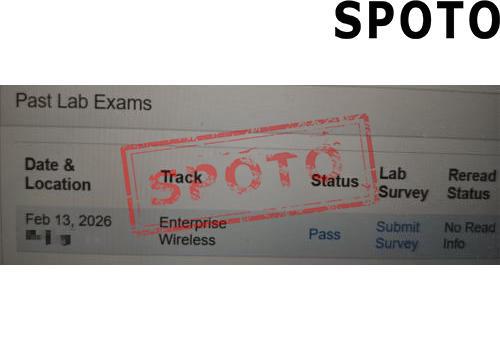
Table of Contents
1. Define Wireless Network Engineer
Wireless network engineers are IT professionals who are responsible for designing, implementing, managing and troubleshooting wireless networks and wireless infrastructure. They specialize in wireless communication technologies such as Wi-Fi, Bluetooth, cellular networks and other radio frequency (RF)-based systems, maintain and optimize wireless networks and wireless network infrastructure, and solve potential and existing wireless network problems.
Wireless network engineers are responsible for designing, deploying, managing, and optimizing wireless network systems to ensure that the network operates efficiently, securely, and stably, including managing firewalls such as Palo Alto, Juniper, or Cisco ASA. First, they use a variety of tools and techniques, such as network performance indicators (NPI), network scanning tools, SNMP, traffic analyzers, packet sniffers, and wireless site surveys, to test, evaluate, and troubleshoot network problems, and model network designs through simulation before deployment. Second, wireless network engineers need to work closely with vendors, enterprise managers, and other network engineers to participate in the planning and improvement of the network from project initiation to implementation to ensure that the business needs of customers are met and the optimized performance of VoIP and other wireless telecommunications equipment is ensured. Third, they are also responsible for configuring and managing various network devices, such as routers, switches, and firewall devices (such as Palo Alto, Juniper, and Cisco ASA). In addition, engineers also need to have radio frequency (RF) link design and verification capabilities to support the construction and optimization of WLAN and other wireless networks, and test and debug network equipment to achieve real-time monitoring and optimization of network performance. In addition, they are also required to write technical documentation, train other employees, and develop data backup and recovery strategies to ensure data integrity and reliability. Finally, the rules of the networking world change over time, and wireless network engineers also need to have a broad understanding of routing protocols (OSPF, EIGRP, and BGP).
2. Skills required for a Wireless Network Engineer
The prerequisite for becoming an excellent Wireless Network Engineer is to have the skills required for this profession. As a Wireless Network Engineer, you need to have solid wireless network skills and knowledge. Specifically, wireless network engineers need to understand TCP/IP, including expertise in IP addressing, subnet division, and routing protocols such as OSPF and BGP, because Transmission Control Protocol/Internet Protocol (TCP/IP) is the basis of the Internet and most network infrastructure. Secondly, one of the core tasks of wireless network engineers is to maintain the security and stability of the organization's wireless network, so troubleshooting skills are one of the essential skills. Engineers must be proficient in using diagnostic tools such as packet analyzers, network performance monitors, and configuration management software to ensure smooth network operation. For example, use network monitoring tools to detect and solve potential problems before they worsen. It is worth noting that although technical skills are essential, wireless network engineers must also have excellent customer service capabilities. Engineers often work with customers or internal employees to provide them with necessary support for hardware, software, and network-related issues. Finally, skills such as network infrastructure design and router configuration and management are also important. Wireless network engineers must constantly understand the updates of technology so that the organization's network system and infrastructure can be updated and improved in a timely manner. However, with the emergence of software-defined wide area network (SD-WAN) DevOps, the emergence of 5G, and the emergence and application of new technologies such as virtualization and cloud technology, it is necessary for wireless network engineers to receive new skills training as this may bring changes to the way they operate.
3. How to become a Wireless Network Engineer
It usually takes 2 to 5 years to become a wireless network engineer, depending on your starting point and education path. Here is a brief breakdown: First, becoming a wireless network engineer requires a certain level of education, with a science degree in computer science often favored by employers. It may take 2 to 4 years to obtain an associate or bachelor's degree in computer networking, information technology, or a related field. Second, industry-recognized certifications can make your resume stand out, and industry-recognized certifications can be obtained in a few months to a year, usually at the same time or after formal education. Finally, having the right work experience in the workplace can make you more likely to get a job, and entry-level IT positions (such as help desk, network technician) provide the practical experience needed to advance to wireless network positions. This may take 1 to 3 years, depending on the content of the work and development opportunities.
4. What are the career prospects and salary of a wireless network engineer?
The job outlook for wireless network engineers is expected to be very strong in the future. According to the U.S. Bureau of Labor Statistics, employment of wireless network engineers is expected to grow 5% from 2019 to 2029, faster than the average for all occupations. The average annual salary for a senior wireless network engineer (CCNP certification) is about $87,772 to $106,566. The hourly wage for freelancers is only $24.57. Of course, the salary of a wireless network engineer is also affected by many other factors, such as work location, work experience, etc.
5. Certifications for Wireless Network Engineers
CCIE Enterprise Wireless is an expert wireless network certification launched by Cisco. It is one of the most valuable technical certifications in the career of wireless network engineers. For professionals who want to become senior wireless network engineers or have deep capabilities in enterprise wireless network design, implementation and optimization, this certification can make people who obtain this certification stand out in job hunting and easily enter large multinational companies, governments, universities, medical and other high-end industries. It is also the recruitment threshold or priority condition for many senior positions in enterprises (such as wireless architects, senior network engineers, and technical consultants).










